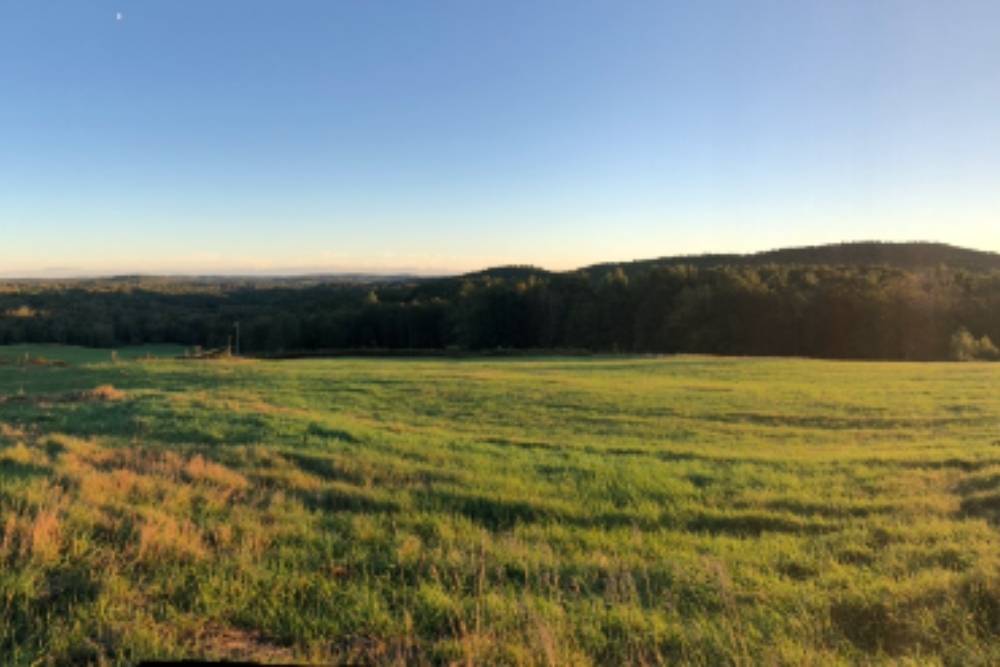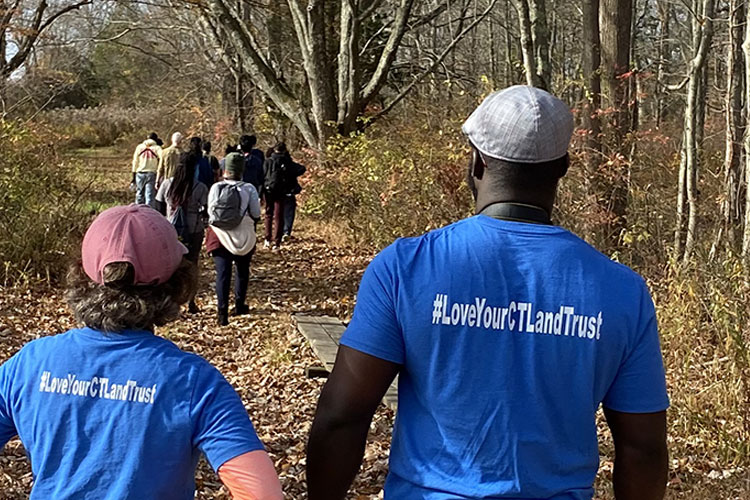News

Building upon previous efforts in this region, CLCC worked with land trusts in the Litchfield Hills and Waterbury Region to address the lack of diversity within the land conservation sector, and to identify new opportunities for participating land trusts to increase outreach and involvement with their local communities.
A NEED FOR INCLUSIVE CONSERVATION
Historically, the land conservation movement has been disconnected with Black, Indigenous, and People of Color (“BIPOC communities”) and has served a primarily white, middle- and upper middle class audience. This disconnect was further illuminated by the Pandemic, as access to open space became a critical need for everyone. The resurgent social justice movement further highlighted the social and systemic barriers that BIPOC communities face in enjoying nature.
CLCC understands the need for land trusts to be reflective of the diversity within their local communities. Land trusts have a responsibility to protect lands in perpetuity, and they must garner support from a broad base in order to carry out this mission.
With this in mind, CLCC set out to build greater cultural competency and awareness of the barriers preventing underserved populations and BIPOC communities from engaging in land conservation.
CREATING A SAFE SPACE FOR CHALLENGING CONVERSATIONS
Working with Environmental and Equity Consultants, Ashley Stewart and David Sutherland, CLCC offered a series of five dialogue sessions for participating land trusts. These sessions explored diversity, equity, accessibility, and inclusion in land conservation, and gave participants an opportunity to examine these topics as they relate internally to their own organizations and externally in their programming and outreach.
Participants dove into these topics discussed and reflected on the ways biases and inequities within land conservation are perpetuated. “It is important not to have preconceived ideas, because seeing something done differently is benefiting, not limiting, ourselves” noted one participant. Another participant stated that “As much as we promote ecological diversity, we should also celebrate human diversity. Let people’s voices be heard and challenge our assumptions about them.”
Through this Advancement Initiative CLCC also helped participating land trusts assess their organizational culture; develop skills for better community engagement, particularly with BIPOC communities; and develop skills for better community engagement.
MOVING THE NEEDLE FORWARD
All participants concluded this project with actionable goals moving forward. These goals ranged from increasing conversations and cultural competency on their own staff and/or board to working with veterans, Indigenous nations, and reaching out to communities beyond town borders. One participating organization built upon the Advancement Initiative to develop a program that builds connections between faith-based groups and land conservation organizations.
The results of this Advancement Initiative will also be sustained by the participating organizations, who plan to meet throughout the year to check in and continue these important conversations. The enthusiasm demonstrated by the participants also presented an opportunity for CLCC to facilitate more peer-to-peer learning – inviting alumni of the program to share their own experiences around inclusive conservation and guide topical conversations with land trusts beginning a new Advancement Initiative.
ACKNOWLEDGEMENTS
CLCC is grateful to the Connecticut Community Foundation for supporting this Advancement Initiative with a $13,000 grant. We would also like to thank the participating organizations whose active and thoughtful participation made this program a success.
